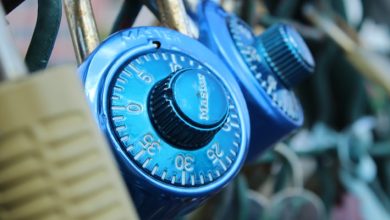What to Do If Your Private Keys Are Compromised

- Understanding the Importance of Private Keys in Cryptocurrency Security
- Signs that Your Private Keys May Have Been Compromised
- Immediate Steps to Take When Your Private Keys Are Compromised
- Recovering from a Private Key Breach: Best Practices
- Preventive Measures to Safeguard Your Private Keys
- Seeking Professional Help: When to Involve Experts in Private Key Security
Understanding the Importance of Private Keys in Cryptocurrency Security
Private keys are a crucial component of cryptocurrency security. They are used to access and manage digital assets stored in a wallet. Private keys are essentially long strings of alphanumeric characters that act as a password to protect your funds. It is important to keep your private keys secure and confidential at all times to prevent unauthorized access to your cryptocurrency holdings.
When private keys are compromised, it can lead to the loss of funds stored in a wallet. Hackers or malicious actors can use compromised private keys to steal cryptocurrency without your knowledge. Therefore, it is essential to take immediate action if you suspect that your private keys have been compromised.
To prevent private key compromise, it is recommended to store them in a secure location, such as a hardware wallet or a secure digital vault. Avoid sharing your private keys with anyone and be cautious of phishing attempts or scams that may try to trick you into revealing your keys. Regularly update your security measures and consider using multi-signature wallets for added protection.
In the event that your private keys are compromised, you should take the following steps to safeguard your cryptocurrency holdings.
Signs that Your Private Keys May Have Been Compromised
There are several signs that your private keys may have been compromised. If you notice any of the following red flags, it is crucial to take immediate action to protect your assets:
- Unexpected changes in your account balance or transaction history.
- Unexplained withdrawals or transfers from your account.
- Difficulty accessing your account or performing transactions.
- Receiving notifications of unauthorized login attempts.
- Unusual activity in your account logs or security settings.
If you experience any of these signs, it is essential to act quickly to secure your assets and prevent further unauthorized access. Ignoring these warning signs could lead to significant financial losses and compromise the security of your digital assets.
Immediate Steps to Take When Your Private Keys Are Compromised
When your private keys are compromised, it is crucial to take immediate steps to prevent further damage. Here are some important actions you should take:
- 1. **Change** your compromised private keys as soon as possible to prevent unauthorized access to your sensitive information.
- 2. **Disable** any accounts or systems that are associated with the compromised keys to minimize the risk of unauthorized access.
- 3. **Notify** your service provider or IT department about the compromised keys so they can take appropriate action to secure the system.
- 4. **Monitor** your accounts and systems closely for any suspicious activity that may indicate further compromise.
- 5. **Consider** implementing additional security measures such as two-factor authentication to protect your sensitive information.
By taking these immediate steps, you can help mitigate the impact of compromised private keys and protect your valuable data from falling into the wrong hands.
Recovering from a Private Key Breach: Best Practices
If your private keys have been compromised, it is crucial to act quickly and decisively to minimize the potential damage. Here are some best practices to follow when recovering from a private key breach:
First, assess the extent of the breach and determine which keys have been compromised. This will help you prioritize your response and focus on securing the most sensitive assets first.
Next, revoke the compromised keys and generate new ones to replace them. Make sure to securely store the new keys and update them regularly to prevent future breaches.
It is also important to update your security protocols and implement additional security measures to prevent similar breaches in the future. This may include using multi-factor authentication, encryption, and regular security audits.
Finally, communicate with your stakeholders about the breach and the steps you have taken to address it. Transparency is key in rebuilding trust and maintaining the confidence of your clients and partners.
By following these best practices, you can recover from a private key breach effectively and protect your sensitive information from further compromise.
Preventive Measures to Safeguard Your Private Keys
Preventive measures are essential to safeguard your private keys and protect your sensitive information from unauthorized access. Here are some steps you can take to enhance the security of your private keys:
- Use a secure password manager to store and manage your private keys. This will help prevent unauthorized access to your keys and keep them safe from cyber threats.
- Avoid sharing your private keys with anyone, including friends or family members. Keeping your keys confidential is crucial to maintaining the security of your digital assets.
- Enable two-factor authentication (2FA) on all accounts that use private keys. This additional layer of security will help prevent unauthorized access even if your private keys are compromised.
- Regularly update your software and security protocols to protect your private keys from vulnerabilities and exploits. Staying up-to-date with the latest security measures is essential in safeguarding your sensitive information.
- Backup your private keys in a secure location, such as an encrypted external hard drive or a hardware wallet. This will ensure that you can recover your keys in case of loss or theft.
By following these preventive measures, you can minimize the risk of your private keys being compromised and protect your digital assets from unauthorized access. Remember, safeguarding your private keys is crucial in maintaining the security and integrity of your sensitive information.
Seeking Professional Help: When to Involve Experts in Private Key Security
When dealing with compromised private keys, it is essential to seek professional help to ensure the security of your digital assets. Experts in private key security have the knowledge and experience to assess the situation and take appropriate measures to protect your information from further breaches. If you suspect that your private keys have been compromised, it is crucial to involve experts as soon as possible.
Professional help can come in the form of cybersecurity firms, digital security consultants, or even the original creators of the encryption technology you are using. These experts can help you determine the extent of the breach, identify vulnerabilities in your security protocols, and implement measures to prevent future attacks. By involving professionals, you can rest assured that your private keys are in safe hands.
Attempting to handle a compromised private key situation on your own can lead to further security risks and potential loss of your digital assets. It is always best to involve experts who have the expertise and resources to address the issue effectively. Remember, when it comes to private key security, it is better to be safe than sorry.



